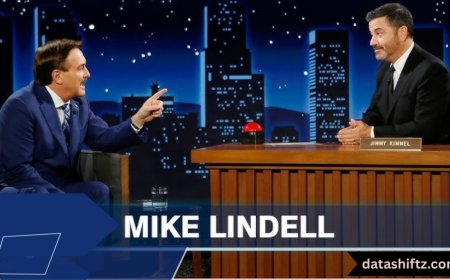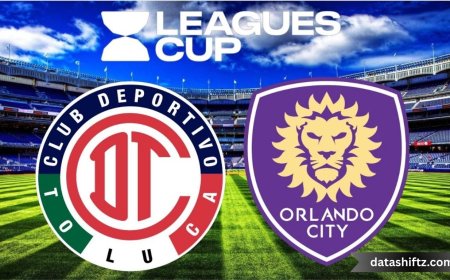RG3 & Angel Reese: A Media Storm Sparks Shaq’s Intervention
Introduction
A recent controversy between former NFL quarterback-turned-analyst Robert Griffin III (RG3) and WNBA standout Angel Reese has ignited a media firestorm involving race, rivalry, and accountability. Griffin’s comments, amplified on social media, sparked rebukes from figures like Ryan Clark and Bernice King, and even led NBA legend Shaquille O’Neal to threaten RG3. What began as a sports debate evolved into a cultural flashpoint—highlighting the complexities of media influence, the responsibilities of public figures, and the sensitive intersection of race and gender in sports commentary.
The Ripple Effect of RG3's Comments
The Controversial Claims
RG3 initially condemned a racist image depicting Reese, but then claimed someone in her “inner circle” told him Reese “hates” WNBA rival Caitlin Clark. Reese and her mother publicly refuted this claim, calling it baseless and attention-seeking.
Backlash from the Sports Community
The response was swift: former NFL player Ryan Clark accused RG3 of race-baiting and attention-grabbing behavior. Meanwhile, Bernice King, daughter of Dr. Martin Luther King Jr., urged RG3 to “contact Reese directly” rather than airing grievances.
Shaq’s Protectiveness and Public Warning
A Mentor’s Defense
NBA legend Shaquille O’Neal, long supportive of Reese since her LSU days, confronted RG3 on FS1’s Off the Record podcast. Shaq warned RG3 that if he didn’t stop posting incendiary comments, he “would punch [him] in [his] face”. He emphasized being Reese’s protector and urged RG3 to stay away from commenting on women’s basketball.
“Tweet another monkey post about my girl Angel Reese and I’m going to punch you in your f—ing face,” Shaq said.
Broader Implications of the Feud
The Reflex of Racial Media Narratives
This incident highlights how quickly social media commentary from prominent figures can amplify divisive narratives. Griffin's reposting of a racist edit—despite claims of calling it out—increased its reach and ignited national outrage. The result: a larger conversation about responsible speech.
Athlete Rivalries Under the Spotlight
Angel Reese and Caitlin Clark’s on-court rivalry has captivated national attention, sometimes veering into toxic territory. Griffin's comments reframed a competitive storyline into a public spectacle with racial overtones, prompting the WNBA to investigate racist responses aimed at Reese .
Key Figures & Their Reactions
| Figure | Role | Key Reaction |
|---|---|---|
| RG3 | Fox Sports Analyst | Claimed Reese “hates” Clark; reposted racist content; defended as speaking truth. |
| Angel Reese | WNBA Star (Chicago Sky) | Denied RG3’s claims; called the narrative false and harmful. |
| Ryan Clark | Former NFL Player | Criticized RG3’s commentary as race-baiting and manipulative |
| Bernice King | Civil Rights Leader’s Daughter | Urged RG3 to reach out privately and stop public commentary . |
| Shaquille O’Neal (Shaq) | NBA Legend, Mentor to Reese | Threatened RG3, saying he was protecting Reese’s reputation . |
Lessons & Takeaways from the Controversy
-
Public Commentary Carries Weight – Statements by high-profile figures spread fast and can inflame tensions.
-
Responsibility in Amplification – Even well-intended reposts of harmful content add to its impact.
-
Private vs. Public Discourse – Bernice King’s appeal reflected a belief that private resolution is often more effective.
-
Age and Experience Matter – Shaq’s intervention underscored generational respect and protective instincts.
-
Racing Narratives Resonate – Historical prejudices around sports rivalry still influence modern narratives.
-
Women in Sports Face Double Standards – The exchange highlights how female athletes bear an unequal burden in public disputes.
-
Rivalry Doesn't Equal Hate – Reese and Clark maintain the rivalry is competitive, not personal.
-
Media Accountability – Ryan Clark and others emphasize that commentators should be held responsible.
-
Outrage Fatigue – Audiences responded with frustration over repeated controversies around the same figures.
-
Focus Back on the Game – Despite the drama, Reese continues delivering on-court excellence.
Conclusion
The RG3–Angel Reese controversy underscores the complex dynamics at play when media personalities weigh in on women's sports. A valid stand against racism became mired in personal attacks, amplified narratives, and public threats. With figures like Shaquille O'Neal stepping up as defenders, the saga prompted broader reflection on race, gender, and media responsibility. At the center is Angel Reese—a world-class athlete whose performance, not controversy, should define her impact.
As the dust settles, the hope is for both clarity and closure. Better media practices, greater respect for women's sport, and a return to focusing on athleticism over sensationalism would go a long way.






























